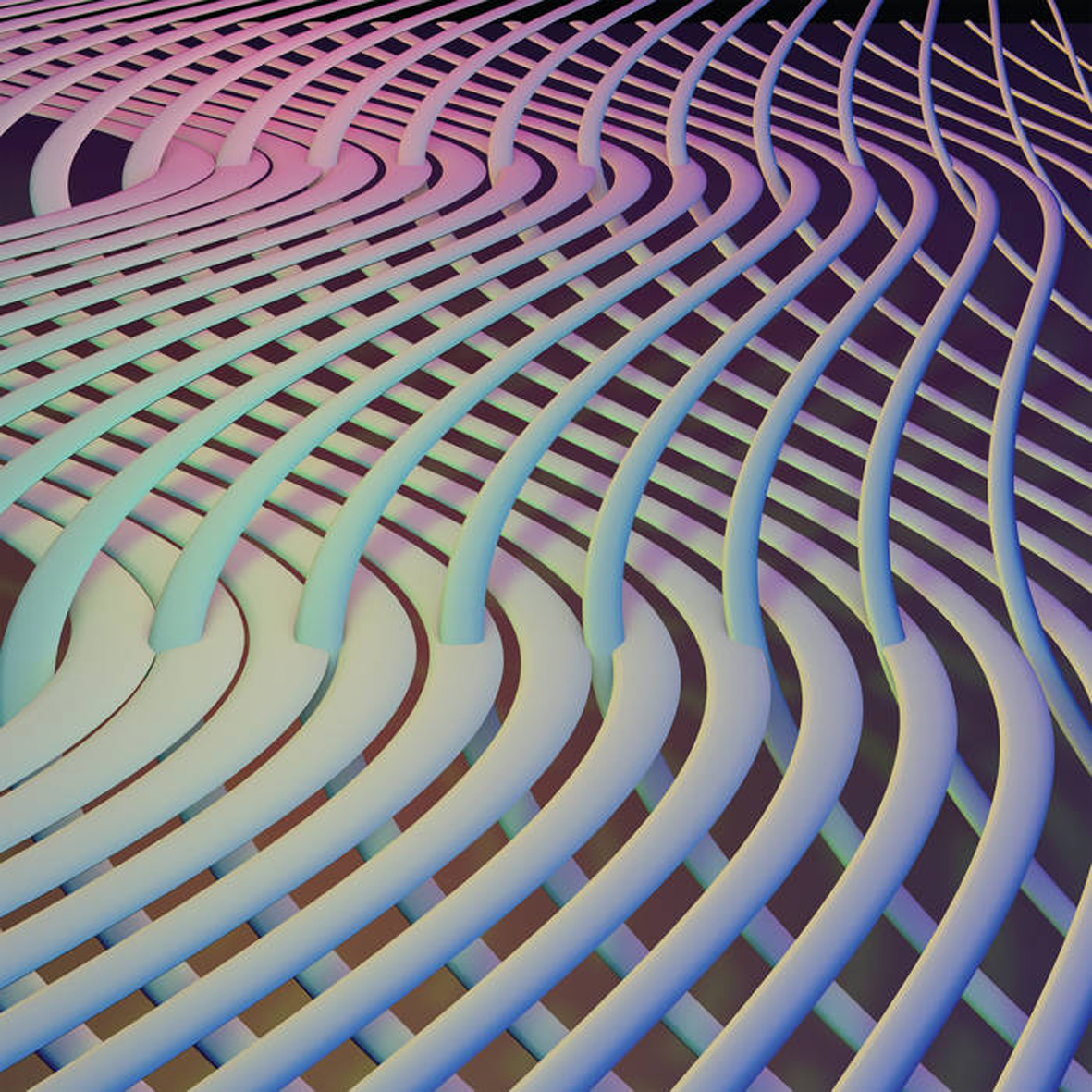
For some reason, I never fully appreciated Emeralds when they were around, but I think I am belatedly redressing that wrong with my interest in Steve Hauschildt’s quietly impressive and steadily evolving solo career.  Prior to Strands, I was most taken with his more "Kraftwerk' moments on 2012's Sequitur, but this latest release often feels like a gorgeous culmination of Hauschildt's artistry, eschewing almost all traces of Vangelis-inspired retro-futurist pastiche to weave a lush and languorous reverie inspired by both creation/destruction myths and the famously burning river of his own hometown of Cleveland.
The opening "Horizon of Appearances" does not waste any time setting the tone for album, as it basically oozes into audibility as a melancholy drift of swelling chords with some distantly hallucinatory drips and twinkles buried deep in the background.  While they are very much in the periphery, those "drips" are probably my favorite part of the otherwise unrelentingly somber piece, sounding like falling condensation in a deep cave that unexpectedly blossoms into ephemeral melody as the splash reverberates around its cavernous surroundings.  Aside from those subtly psychedelic nuances, "Horizon" is far from my favorite piece on the album, but it is only the monochromatic sadness of the central motif that relegates it to the status, as I very much love the unhurried, exhalation-like pace and attention to detail.  The following "Same River Twice" offers up a somewhat different template, however, keeping the melancholy, but enlivening its theme with an undercurrent of burbling momentum, a shuffling rhythm, and flourishes of vibrantly glittering arpeggios.  It is a fairly representative work rather than an exciting leap forward, but it does capture Hauschildt's longtime aesthetic at its best: simultaneously understated, vibrant, and richly layered.
The album starts to catch fire in earnest (like the Cuyahoga) around the fourth song, however, as "Ketracel" bolsters its melancholy faux-string melody with an energetic bed of pulsing arpeggios, off-kilter rhythms, and a host of delightful bleeps and squelches.  Then the piece gets uncharacteristically pulled apart and the sadness of the central theme gets almost completely consumed by the increasingly erratic underlying music and some intrusions of noisier textures.  It is quite a curveball by Hauschildt standards and the following album highlight "Time We Have" keeps that momentum going beautifully.  Like several other pieces on the album, it is quite slow-moving and elegiac, but manages to come across as warm and rapturous rather than somber.  Also, Hauschildt enhances his perfect melody with some nice textural crackle and increasingly rich harmonies.  It is simultaneously simple, gorgeous, and moving and is likely the crown jewel of Hauschildt’s career to date. The following title piece is also another quiet stunner, as its lovely subdued and burbling melody is allowed to spiral off into a number of compelling textural directions, leaving a trail of wonderfully hallucinatory afterimages that seem to have a life of their own.
Lamentably, that wonderful streak of near-perfect songs could not last forever, as Hauschildt becomes overly somber again with "Transience of Earthly Joys," which almost sounds like a funeral mass.  It is not necessary a misfire, but it definitely could benefit from a lighter touch.  The closing "Die in Fascination" feels like belated coda to the earlier "Time We Have," as it reprises its formula of simplicity and a quietly beautiful flow of swelling chords.  Unlike "Time We Have," however, it just gradually fades away rather than blossoming into anything more.  Within the context of the album, that was an excellent sequencing choice, but it is a bit too basic to stand as one of the album's high points.  Much like every Hauschildt album, Strands is ultimately a bit of a mixed bag, as Steve is prone to occasional heavy-handedness or dubious stylistic choices.  However, he is also one of the most gifted and exacting composers currently working with synthesizers, so I do not mind listening to a handful of near-misses to get to the inevitable bulls-eye or two.  Also, even his near-misses tend to offer a few compelling facets, as the sheer craft of Hauschildt's work is always impressive even when the songs themselves fall a bit short.  In any case, Strands certainly seems like Hauschildt's finest album to date, boasting both an impressively sustained three-song burst of greatness and the feeling of a thematically satisfying and artfully sequenced whole.
Samples:
 
Read More

